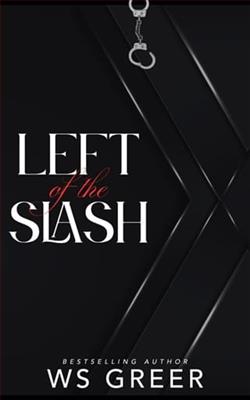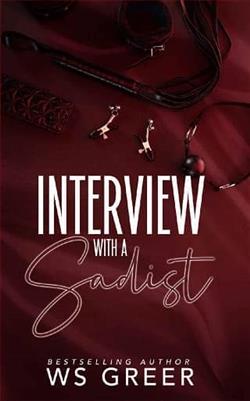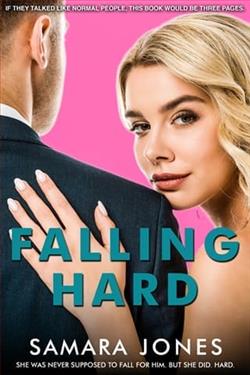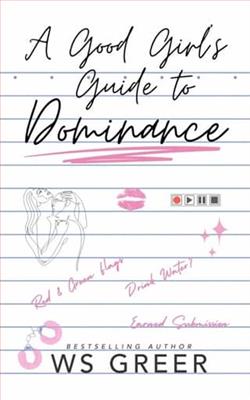Page 2 of A Flowering of Ink
“No. Thank you, Mike.”
“I’m going back to the lichen,” Mike said, “they make more sense than you,” and vanished.
Burne touched ink and enchantment, traced Devon’s sense of humor, thought about unicorns. Of course he was going to write back.
Maybe he shouldn’t. Maybe that’d be weird, when they didn’t know each other. Maybe Devon would rather be left alone.
But helikedDevon Lilian. Who’d sent him not only his niece’s birthday card, but a birthday present; who’d made him laugh and made him smile. Who presented a mystery: that formal handwriting, that fairytale address, whatever story lay behind not going into town much.
And that art. That stunning display of talent. Which Devon had also—Burne paused to reread—attempted to apologize for. Done quickly. Very small.
Ha. As if. Both pieces weregood; Burne, who knew nothing about art, knew that.
He wanted to know more.
He should be working on a comparative analysis of sea grass growth along the shore versus up in the rocks, but he couldn’t do much until the computer finished with yesterday’s data, so instead he hunted for paper that did not have the Island Conservation Institute official letterhead, failed to find any, gave up, and opened with,Devon—sorry about the letterhead; I’m not that formal, we just don’t have any paper.
Maybe he shouldn’t start with that.
He crumpled that one up. Tried again. His handwriting wasn’t terrible but definitely wasn’t graceful or classical; it’d devolved over years of scientific scribblings. He made an effort, though. He could type—he had his laptop, and a printer—but Devon had sent him something handwritten, touched and shaped, personal. Burne wanted to do that too.
First, thank you for sending my family’s card! And please don’t worry about opening it; not your fault andalso it’s like having an extra present, a couple weeks later. Speaking of presents, thank you for the art—they’re beautiful. I’ve put them up in my office.He hadn’t yet, but he would by the time this letter arrived.You did say you wanted to know everything got here safely, so yes, everything did! And how did you know we’ve just found a whole colony of aquatic glitter unicorns? Extremely rare. I’d send you a photo but they’re shy.
He paused again.I know you said you did those quickly, but they really are lovely—are you an artist?A question, an invitation. If that worked. If it kept this magic spell going.
He realized as he wrote the question that he could probably look up Devon Lilian—that couldn’t be a very usual name—but some part of him didn’t want to. Not yet. Not now. The mystery. The story. His person, writing to him. Not shared with anyone else.
He found the tray of dried flowers and backup samples. They had a lot; he could pick one. Anyway, they were his flowers. He could send them to his person if he wanted to.
As a thank you, here’s a flower—it’s a California buttercup, Ranunculus californicus, not too rare but I’ve always liked the color. They grow up on the hills, and a couple of weeks ago this whole side of the island looked like gold. There might be buttercup unicorns but I haven’t seen any yet. Have you, out where you are?
Thank you again, and sorry about the letterhead; it was that or pages out of an ocean-splashed notebook. I figured this was more legible!
He considered sign-offs, despaired for a second—your friend? best? sincerely? another thanks?—and finally just signed his name, the usual scribble.
He looked at the finished letter.
The morning sunlight streaked across his desk, his laptop, his flowers and notes. It draped a veil of gold across Devon’s art, a nudge of encouragement.
Burne threw it a salute, and searched for an envelope.
Chapter 2
Devon Lilian, perched on his kitchen counter, swung a long leg back and forth, and waited for his kettle, and stared at the letter in his hand. Coastal early-morning fog wrapped his house inside a swirl of green-grey mint-chip hillside and sea-haze beyond, a dance of opals and oceans.
The flower also in his hand glowed yellow. Bright, against his browner fingers. Sunny. A lemon drop. Incongruous.
Professor Burne Cameron had sent him a buttercup. Not rare, but radiant. Like gold on a hillside, the letter said. Devon knew it did, because he’d read it and reread it, since its arrival yesterday. He’d half-accidentally memorized most of it.
Cheerful gratitude. Unicorn jokes. Gentle reassurance. Equally gentle questions: are you an artist, have you seen flowery mythical beasts, everything light and playful, nothing too personal but an invitation. Beckoning. If Devon wanted to answer.
He rubbed his thumb along the paper. Not as expensive as something he’d’ve bought; but of course Professor Cameron—Burne; he’d signed the letter with his first name—would have practical options, out there on a wild island in the ocean. Doing research, surrounded by sea and sky and salt, rocks and microscopes and passion.
Devon considered the flower again. Burne loved his job, that much was clear. Such joy in a flower, in a description. In a mention of an ocean-splashed notebook.
Someone so passionate, so brilliant, so devoted to his research that he’d spend months on an island, exploring the minutia of sea grass, running comparative analyses and gathering samples and all sorts of scientific botanical endeavors that Devon wouldn’t have the first idea about. Someone outgoing, happy rambling around out of doors. Someone happy in general, from the way he wrote, confident and breezy, smiling and broad-shouldered and red-haired and scruffy-bearded and tanned as a nineteenth-century adventurer-hero in his official faculty photograph. Someone with whom Devon would have nothing in common, if they ever met.
Someone he shouldn’t meet, for so many reasons. Or only two. But they both were large reasons, shaped like sharp-edged island rocks and distance, and an equally sharp reminder in Devon’s own heart.















